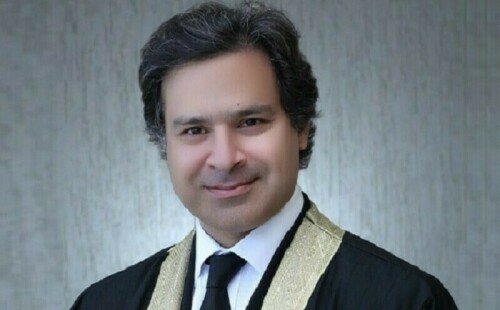ISLAMABAD: The government has for the first time empowered itself, at least on paper, to practically oversee and manage collection of terrorism-specific intelligence from civil and military agencies.
In future all 26 intelligence agencies gathering information about terrorist outfits and their potential evil designs will be responsible to the newly set-up National Intelligence Directorate under the reformed National Counter-Terrorism Authority (Nacta).
The momentous decision was taken on Tuesday at a meeting attended by almost entire civilian and military leadership at the Prime Minister’s Office.
Elaborate security arrangements were put in place for the meeting. Personnel of both the civil armed forces and military were deployed all around, particularly on the route from Rawalpindi to Islamabad.
An official statement said the prime minister had directed that the National Intelligence Directorate under Nacta be immediately set up to pool national and provincial intelligence resources.
As proposed in the new national security policy unveiled on Feb 26, the meeting approved the establishment of a rapid response force at the federal and provincial levels with trained manpower.
The meeting presided over by Prime Minister Nawaz Sharif was attended by chief ministers of the four provinces, Interior Minister Chaudhry Nisar Ali Khan, Chief of the Army Staff General Raheel Sharif, ISI Director General Lt Gen Zahirul Islam, Chief of General Staff Lt Gen Ashfaq Ahmad Nadeem and DG Military Operations Major General Amir Riaz, provincial chief secretaries and inspectors general of police. The DGMO, the ISI deputy director general and the interior minister briefed the meeting on different aspects of internal security.
The participants, according to a source, appeared more or less on the same page as far as formulation and the need for the new internal security policy were concerned. But there were questions how the government would ensure its effective and timely implementation because in the past successive governments had promised similar measures, but in the end nothing materialised.
Nacta was actually set up by the PPP government in 2009 for the sole purpose of countering terrorism.
Responding to questions, the prime minister said he would personally oversee implementation of the measures announced in the policy. When one of the chief ministers spoke about additional expenditures the provinces would incur in setting up the rapid force, Mr Sharif said the federal government would provide funds.
Asked if setting up the intelligence directorate under Nacta meant bringing the Inter-Services Intelligence under the civilian control, an official said a wing of the military-run agency dealing with issues relating to counter-terrorism would report to the new directorate.
“The ISI has a vast area of operation and works as the first line of defence against internal and external security threats to the country. Under the new scheme, the ISI will be playing a crucial role in gathering intelligence for Nacta,” the official said.
Chaudhry Nisar has pointed out several times lack of working relationship between the civilian and military intelligence agencies.
TALKS WITH TTP: The meeting was also briefed on talks with Taliban. According to the source, Chaudhry Nisar, who is the focal person of the government on peace dialogue with the banned Tehreek-i-Taliban Pakistan, said the two sides (TTP and government committees) were trying to find common grounds to take the process forward.
Talking to journalist at a function, Information Minister Parvez Rashid said the government would discuss TTP’s demands and make its response public in due course of time.
One of the demands relates to release of no-combatants (women, children and the elderly) who the TTP claims are in military-run internment centres.
The defence ministry has categorically rejected the Taliban claim. In his opening remarks at the meeting, Prime Minister Sharif said the provincial governments and institutions would have to work hard to eradicate terrorism from the country. “Economic prosperity is linked with security and peace in the country.”
LEGAL FRAMEWORK: The newly legislated legal framework dealing with counter-terrorism measures was also reviewed. According to the official handout, the prime minister asked the provinces to ensure that admissible evidence is gathered and efficient and timely prosecution is carried out in heinous offences. He directed early establishment of high security prisons in the four provinces.
The prime minister asked the chief ministers to effectively utilise the Protection of Pakistan Ordinance because it had made electronic evidence admissible and allowed video link trial and transfer of trials/prisoners to other provinces and preventive detention of aliens.
The prime minister later handed over bomb disposal response vehicles to the chief ministers. The vehicles are equipped with advanced technology to defuse bombs and improvised explosive devices.














































Dear visitor, the comments section is undergoing an overhaul and will return soon.